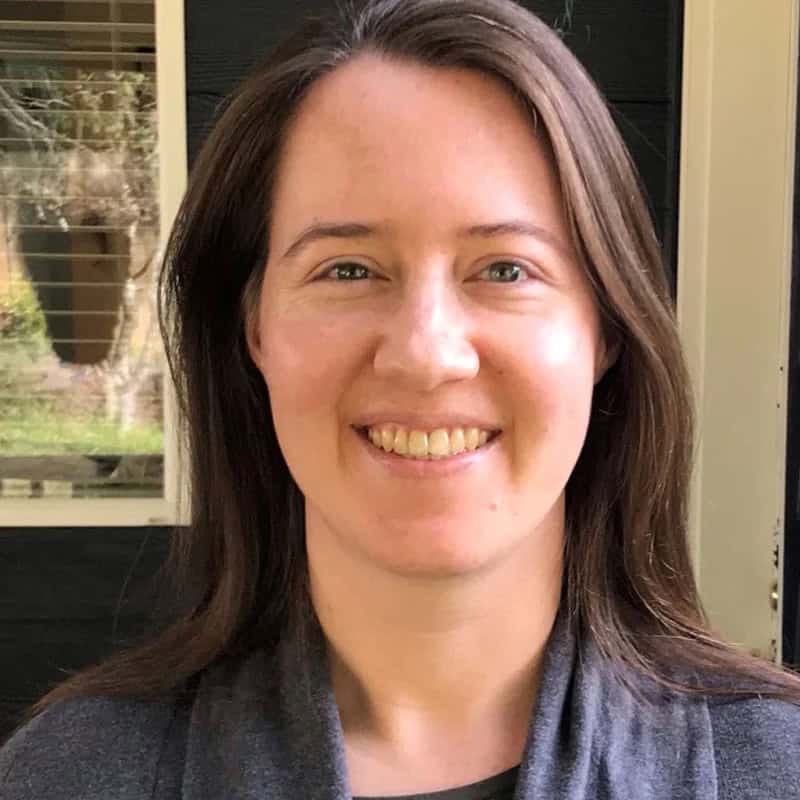 On January 21, 2025, Episcopal Bishop Mariann Edgar Budde preached at the presidential inauguration prayer service, and her words reverberated far beyond the walls of the National Cathedral.
On January 21, 2025, Episcopal Bishop Mariann Edgar Budde preached at the presidential inauguration prayer service, and her words reverberated far beyond the walls of the National Cathedral.
Bishop Budde called our new leaders to build “the foundations we need for unity”: foundations that include “honesty,” “humility,” and “honoring the inherent dignity of every human being.” She called for mercy toward all people—and, particularly, mercy toward “the people in our country who are scared.” Toward queer and transgender people. Toward immigrants, whether or not they “have the proper documentation”—recognizing that “the vast majority…pay taxes and are good neighbors.”[1]
When we think of speaking truth to power, we might think of this.
What does it mean to preach prophetically in today’s political climate?
How can sermons—so often used to prop up the status quo, sometimes even to encourage parishioners’ baser instincts toward division, self-obsession, or violence—instead speak prophetic truth in a way that might transform us all?
Bishop Budde’s sermon provides a powerful example.
But preaching truth to power is not only for people who find themselves in a position like hers, invited to speak directly to the highest authorities in our nation. And it’s not just for nationally-watched ceremonies like the inaugural prayer service. It’s for all humans who preach in this time. It’s for local congregations of every shape and size. And it’s for every single ordinary Sunday.
As our current regime’s violence worsens, preachers might find themselves tempted to try to stay apolitical. Prophetic preaching resists this urge. After all, as Christina Edmonson writes,
“Politics are always in play, even and maybe especially among those who see themselves as the ‘just preach the gospel’ crowd. Denying the embedded politicalness of the church makes it no less political.”[2]
Our church communities exist in a political world, and our faith carries political implications. There is no “just preach the gospel”; that is, there is no good news of God’s love for our world without real implications for this actual world we live in—the one where immigrants, queer people, and ultimately all of us suffer under administrations that do not value our lives.
While Jesus came so that we may have life and have it to the full (John 10:10), the oppressive forces of empire actively work in the opposite direction. Prophetic preaching speaks with Jesus’ vision of abundant life in mind. It imagines the way our world could be: every life honored. White supremacy, misogyny, environmental degradation, and genocide—nonexistent. Immigrants welcomed warmly rather than kidnapped from their homes, workplaces, and communities.
In a world where, today more than ever, “the wealthy routinely exploit the poor and those living on the margins are fodder for injustice,” as Kelley Nikondena writes, we preach because we refuse to “[give] up on newness as a viable option.”[3]
Prophetic preaching resists despair. It helps congregations envision a different way of being. It seeks newness. It creates. It expands the range of viable options for the kind of lives we might live, the ways we might resist violence and oppression together.
Perhaps, as Brenda Salter McNeil says about prayer, prophetic preaching “gives us a vision and purpose greater than ourselves, and the courage to continue to confront social and political powers of injustice.”[4]
What does this vision look like? It might involve embracing the “living abundance” God provides, which leads us to “reorganize our lives together” such that we “take only what [we] need, and care for one another,” in Daniel Jones’ words.[5]
It might mean we dive deep into community care, challenging the “rugged individualism” that, according to Steven Charleston, forms “some of the bedrock assumptions of our society.”[6]
Prophetic preaching might call us to return to a “lush and harmonious relationship with the land and animals,” as Victoria Loorz envisions.[7] It might involve patience, a slowing down of our grueling pace of life that is no less than “revolutionary,” as Shannon Evans writes.[8] It certainly means speaking with, in Desmond Tutu’s words, “concern for the whole person” in mind.[9]
We follow Jesus’ lead in preaching a “message of liberation—love that could transcend [empire’s] hierarchy by proclaiming the worthiness of all,” as Lyndsey Medford puts it.[10]
When we feel stretched thin, anxious about our own present circumstances and possible futures, we might find ourselves tempted to hunker down, to hoard, to tighten our social circles and spheres of concern. Prophetic preaching—the kind that dreams of a more expansive, love-filled, generous way—encourages us to move in a different direction. One that ultimately brings fulfillment, maybe even peace and joy in the midst of our difficult times.
There is life to be found, even here and now. Engaging in prophetic preaching—doing it ourselves, hearing it from others, sharing it broadly and amplifying the voices of those who are speaking out—is part of how we follow Jesus in our current political climate. We join those who are “crying out that someone’s hurting their people, that life matters,” as Solita Alexander Riley says; together, we “call for law based on life-affirming principles.”[11] And our calls hold power.
As Bishop Budde spoke back in January, our new leaders squirmed in their seats, rolling their eyes and whispering to one another. Their mocking postures betrayed the reality that her sermon must have gotten under their skin. It certainly earned our new president’s ire in a social media post the next day.
In the months since, Bishop Budde’s words have only become more prescient and poignant. So many of our neighbors are scared; so many of us are scared. Her sermon voiced clarity and love, inspiring resilience and courage. We, too, can speak in ways that put hope into words and invite our communities into abundant, life-affirming, liberating ways of being. We speak a different kind of world into being.
References:
[1] These quotes are from the “Full Transcript of the 2025 Inauguration Prayer Service Address by the Rt. Reverend Mariann Edgar Budde, the Bishop of Washington” as recorded in the San Francisco Bay Times (https://sfbaytimes.com/full-transcript-of-the-2025-inauguration-prayer-service-address-by-the-rt-reverend-mariann-edgar-budde-the-bishop-of-washington/, accessed 10/20/25).
[2] Christina Edmonson, “Disciplining the Church,” in Truth’s Table: Black Women’s Musings on Life, Love and Liberation, by Edmonson, Ekemini Uwan, and Michelle Higgins (New York: Convergent Books, 2022), 170.
[3] Kelley Nikondeha, Defiant: What the Women of Exodus Teach Us About Freedom (Grand Rapids: Eerdmans, 2020), 87.
[4] Brenda Salter McNeil, Becoming Brave: Finding the Courage to Pursue Racial Justice Now (Ada: Brazos Press, 2020), 149.
[5] Daniel Jones, “God Created Enough,” in We Cry Justice: Reading the Bible with the Poor People’s Campaign, ed. Liz Theoharis (Minneapolis: Broadleaf Books, 2021), 22-3.
[6] Steven Charleston, We Survived the End of the World: Lessons from Native America on Apocalypse and Hope (Minneapolis: Broadleaf Books, 2023), 44.
[7] Victoria Loorz, Church of the Wild: How Nature Invites Us Into the Sacred (Minneapolis: Broadleaf Books, 2021), 118.
[8] Shannon K. Evans, Rewilding Motherhood: Your Path to an Empowered Feminine Spirituality (Ada: Brazos Press, 2021), 78.
[9] Desmond Tutu, God Is Not a Christian: And Other Provocations (New York: HarperOne, 2011), 124.
[10] Lyndsey Medford, My Body and Other Crumbling Empires: Lessons for Healing in a World That Is Sick (Minneapolis: Broadleaf Books, 2023), 44.
[11] Solita Alexander Riley, “Whose Law and Whose Order?” in We Cry Justice: Reading the Bible with the Poor People’s Campaign, ed. Liz Theoharis (Minneapolis: Broadleaf Books, 2021), 201.
 Liz Cooledge Jenkins is a Seattle-based writer, preacher, former college campus minister, and the author of Nice Churchy Patriarchy: Reclaiming Women’s Humanity from Evangelicalism. She writes regularly at growingintokinship.
Liz Cooledge Jenkins is a Seattle-based writer, preacher, former college campus minister, and the author of Nice Churchy Patriarchy: Reclaiming Women’s Humanity from Evangelicalism. She writes regularly at growingintokinship.


